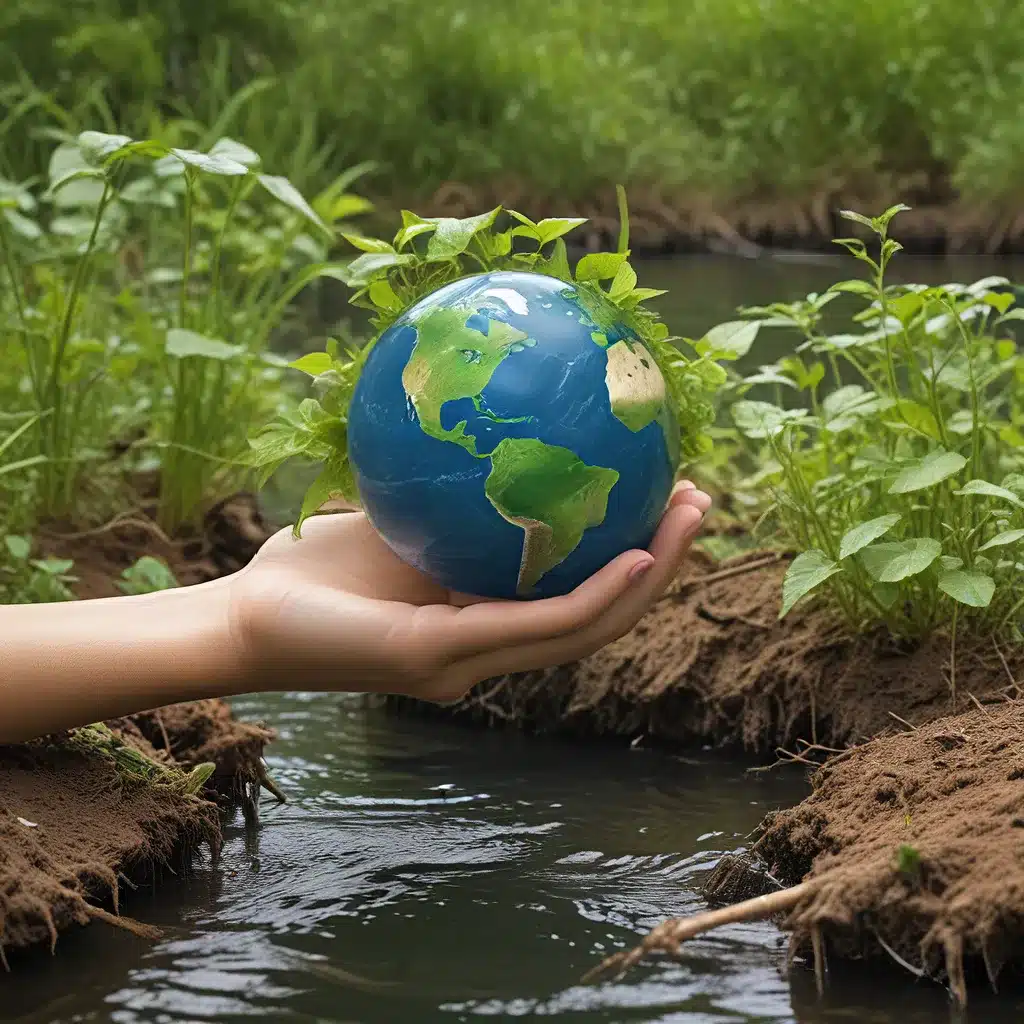
The Tide is Turning: Sustainability Takes Center Stage
You know, I used to think environmental sustainability was just a passing fad – something companies jumped on to look good, but didn’t really commit to. But boy, was I wrong. The more I dig into this topic, the more I realize that eco-friendly practices are becoming an essential part of doing business these days. And it’s not just about looking good – it’s about staying competitive and future-proofing your operations.
Take the packaging industry, for example. According to Bradley Saveth, president and COO of SupplyCaddy, a global packaging solutions provider, the era of single-use plastics and excessive waste is gradually giving way to a new paradigm of sustainable packaging. Consumers these days are actively seeking out brands that prioritize environmentally friendly practices, making sustainable packaging a crucial factor for business success.
It’s not just about the materials used either. Companies are getting creative with their packaging design, leveraging smart technologies like intelligent labels and QR codes to promote recycling and provide consumers with product information. And they’re optimizing their supply chains to minimize transportation-related emissions – a holistic approach that ensures sustainability is embedded in every aspect of the process.
Turning the Tide: How Consumers are Driving the Shift
But it’s not just the businesses leading the charge. Consumers are playing a big role in this shift as well. According to a PwC survey, half of all global consumers say they’ve become even more eco-friendly since the pandemic. And it’s not just the younger generations – the survey found that Millennials and Gen Zers are leading the way when it comes to sustainable shopping habits.
One interesting takeaway from the PwC data is that consumers in the Asia-Pacific region and the Middle East are particularly eco-conscious, with over two-thirds of respondents in those regions reporting they’ve become more environmentally friendly. This suggests that sustainability messaging might have a particularly strong impact in those markets.
But it’s not all sunshine and rainbows. The survey also revealed that a significant portion of consumers – about 44% – aren’t fully on board with the sustainable shopping trend. These “sustainability skeptics” may be put off by the perceived higher costs of eco-friendly products or simply value convenience over environmental impact.
Riding the Wave: How Companies are Embracing Sustainability
So how are companies responding to this shift in consumer preferences? Well, it’s not just about slapping a “green” label on their products and calling it a day. Businesses are taking a much more holistic approach to sustainability, and the PwC survey highlights some of the innovative ways they’re doing it.
For example, Grupo Éxito, a Colombian food retailer, is incentivizing cattle farmers to reforest recently cleared land. And US retailer Kroger has partnered with 80 Acres Farms to operate indoor vertical farms that use 97% less water and 100% renewable energy.
Companies are also getting creative with their packaging solutions. According to Bradley Saveth, the AS Watson Group, an international health and beauty retailer, has been a pioneer in recycling and using recycled materials in their products. And Alibaba Group is trying to address packaging waste by installing pickup stations across China where customers can drop off their unwanted shipping boxes.
Navigating the Currents: Overcoming Sustainability Challenges
Of course, transitioning to more sustainable practices isn’t always easy. Businesses have to navigate a delicate balance between cost considerations, material availability, and compatibility with existing manufacturing processes. But the companies that are able to overcome these challenges are the ones that are going to come out on top.
As Bradley Saveth points out, it’s all about taking a long-term view. While sustainable packaging may have a perception of being more expensive, businesses need to consider the total cost – including material savings, operational efficiencies, and potential marketing advantages.
And it’s not just about the end product. Companies are also focusing on optimizing their supply chains to reduce environmental impact. This might involve things like minimizing transportation-related emissions, leveraging local sourcing opportunities, and avoiding short-term, unsustainable fixes.
Riding the Wave of Change: Innovations in Environmental Services
As the tide continues to turn in favor of sustainability, the environmental services industry is poised to play a pivotal role. Companies like Inland Waters Inc. are at the forefront of developing innovative solutions to help businesses and communities become more eco-friendly.
From advanced water treatment technologies to comprehensive waste management services, these environmental pioneers are helping their clients reduce their carbon footprint, conserve natural resources, and stay ahead of the curve when it comes to environmental regulations.
But it’s not just about the technical solutions. These companies are also offering guidance and expertise to help their clients navigate the complex landscape of sustainability. They’re providing the tools and resources businesses need to make informed decisions, implement effective strategies, and communicate their environmental achievements to their customers.
Riding the Currents of the Future
As the world continues to grapple with the challenges of climate change and environmental degradation, the demand for sustainable practices is only going to continue to grow. And the companies that are able to embrace eco-friendly innovations and position themselves as leaders in this space are the ones that are going to thrive in the years to come.
So, whether you’re a business owner, a consumer, or just someone who cares about the planet, it’s time to start paying attention to the currents of change. Because the tide is turning, and those who are able to ride the wave of sustainability are going to be the ones who come out on top.


